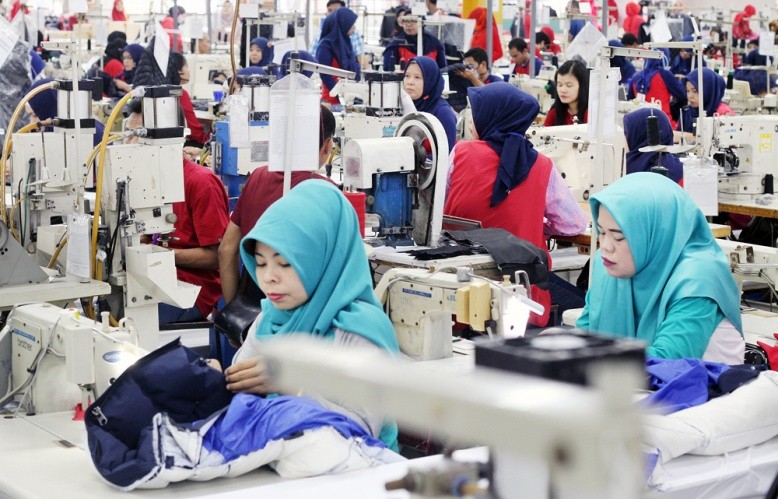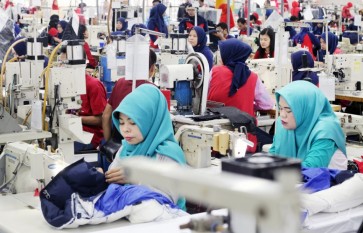In 2019, Indonesian textile producers lose battle on home turf
Unable to compete in the domestic market, many textile companies were forced to close their factories. On the international market, meanwhile, while exports have trended upwards, Indonesian textile producers failed to tap into the market potential of the United States.
Change Size
 Factory fashions: Workers operate sewing machines at a garment factory in Bogor, West Java, in September 2018. The government wants Indonesia to be a top-five world textile producer by 2030, but several businesses in the industry have had to close amid tight competition. (Antara/Yulius Satria Wijaya)
Factory fashions: Workers operate sewing machines at a garment factory in Bogor, West Java, in September 2018. The government wants Indonesia to be a top-five world textile producer by 2030, but several businesses in the industry have had to close amid tight competition. (Antara/Yulius Satria Wijaya)
I
t is hard to imagine a year being any worse for the textile industry than 2019, a year in which the country’s garment and textile producers lost the battle for their home turf to an influx of cheap imports.
Unable to compete in the domestic market, many textile companies were forced to close their factories. On the international market, meanwhile, while exports have trended upwards, Indonesian textile producers failed to tap into the market potential of the United States.
Local textile producers have been unable to compete with producers in other Asian countries such as Bangladesh and Vietnam as the US market looks for alternatives to Chinese products amid the ongoing trade war between the two countries.
Imports of textile products have increased sharply in recent years due to a lack of government protection.
Indonesian Filament and Fiber Producers Association (APSyFI) secretary-general Redma Gita Wirawasta said fabric imports had tripled from 300,000 tons in 2008 to 900,000 tons in 2018. The influx of imported fabrics continued to gather pace this year.
The Indonesian Textile Association (API) reported recently that as many as nine textile factories that employed roughly 2,000 workers had been closed as garment producers switched to using imported fabrics that could be as much as 40 percent cheaper than local products.
The association’s chairman, Ade Sudrajat Usman, said the local textile industry was in a state of emergency.

















